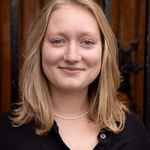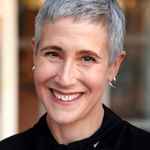Study programme
Curating and Research in one programme
Students choose one of two unique specialisations: Curating Art and Cultures or Arts of the Netherlands. The first specialisation focuses on curatorial theory and practice, while the second highlights research into Dutch art in a global context.
Specialisation Curating Art and Cultures
With its multi-disciplinary approach, Curating Art and Cultures both develops your theoretical knowledge and provides you with the opportunity to work as a curator-in-training during the one-year curatorial internship at one of the programme’s partner museums or cultural institutions. You will take part in collection acquisition, registration, management, art handling and display, exhibition production, and restoration and conservation. In short, this is your chance to dive headfirst into the many aspects of the curatorial profession.
Specialisation Arts of the Netherlands
Arts of the Netherlands takes a historical and object-oriented approach and aims to teach students how to carry out cutting-edge research on Netherlandish art in an international context. Students will develop academic research methods both in the classroom and during a seven-month internship. This provides unmatched opportunities for examining and investigating the physical objects of our studies and for exploring the academic approach to art-historical research within the museum. The programme is committed to the study of painting, prints, drawings, sculpture and applied arts.

There is sufficient freedom of choice to specialise in the subject that you find most interesting during your study, research and internship.Femke Valkhoff, student Arts of the Netherlands Read the interview
Programme structure
The Dual Master’s in Curating Art and Cultures is a two-year professional programme comprising 120 ECTS credits:
Specialisation Curating Art and Cultures
- 18 ECTS Shared Core courses
- 6 ECTS Path-specific Core Course
- 18 ECTS Electives
- 60 ECTS Internship
- 18 ECTS Thesis
Specialisation Arts of the Netherlands
- 18 ECTS Shared Core Courses
- 24 ECTS Path-specific Core Courses
- 6 ECTS Tutorial
- 6 ECTS Dutch Post Graduate School of Art History
- 12 ECTS Electives
- 30 ECTS Internship
- 6 ECTS Thesis Project
- 18 ECTS Thesis
-
Core courses
Central to the Dual Master’s in Curating Art and Cultures are two shared core modules (18 ECTS) that explore the historical and theoretical aspects of museum collecting and display, as well as the theoretical and practical aspects of contemporary (museum) curating.
In addition, the specialisation Curating Art and Cultures comprises a further core module with excursions to cultural institutions in the Netherlands and abroad, designed to connect the practical aspects of the internship with academic reflection.
The aim of the additional core modules followed in Arts of the Netherlands is to provide students with a thorough understanding of the current research and debates on Early Netherlandish art, art of the Golden Age, and art of the 19th and early 20th centuries.
-
Electives
In addition to these core courses, you will have the opportunity to delve deeper into your field of interest by following electives in a range of disciplines, including art history, history, cultural history, archaeology, anthropology, and cultural or media studies.
-
Internship
The internship forms the core of the Dual Master’s in Curating Art and Cultures.
Curating Art and Cultures
Starting in the second semester of the first year, you will commence a year-long work placement at one of the programme’s partner museums or cultural institutions. During this internship, unique among curatorial and museum studies programmes around the world, you will receive hands-on training in all aspects of professional museum practice, from research for publications to organising exhibitions. Under the supervision of curatorial professionals, you will gain first-hand experience of the roles and responsibilities of the curator today, including presentation and exhibition making, registration and documentation, art handling, restoration and conservation, research and communication, and acquisition policy.
Arts of the Netherlands
Starting in September of the second year, you will commence an internship of approximately seven to eight months in a museum or research institute. Together with your supervisor, you will formulate a research project that fits within the framework of the institution and your own disciplinary interests. Contact with original objects and reflection on research methods are seminal aspects of the internship. However, you will also gain insight into the day-to-day business of the museum or research institute, and may be asked to assist with other museum/research work.
Partner institutions
The Master's programme has strong connections with the professional field. Partner institutions where you can do your internship include:
- Rijksmuseum, Amsterdam
- Van Gogh Museum, Amsterdam
- Stedelijk Museum, Amsterdam
- Jewish Cultural Quarter, Amsterdam
- ING Huygens Instituut, Amsterdam (Arts of the Netherlands only)
- Wereldmuseum, Amsterdam/Leiden
- Amsterdam Museum
- Centraal Museum Utrecht
- Museum Het Catharijne Convent, Utrecht (Arts of the Netherlands only)
- Kunstmuseum Den Haag, The Hague
- Kunstmuseum Arnhem
- Mauritshuis, The Hague
- The Royal Library, The Hague (Arts of the Netherlands only)
- RKD – Netherlands Institute for Art History, The Hague (Arts of the Netherlands only)
- Kröller-Müller Museum, Otterlo
- Van Abbe Museum, Eindhoven
- Frans Hals Museum, Haarlem
- Museum Boijmans Van Beuningen, Rotterdam
- Textielmuseum, Tilburg
- Stedelijk Museum Alkmaar
AllowanceStudents taking a dual Master's programme may in some cases be eligible for a reimbursement.
-
Tutorial
Arts of the Netherlands comprises a mandatory tutorial. In a tutorial, you have the freedom to explore your personal interest in or deepen your knowledge of specific topics under the supervision of a specialist. The topic will be determined on the basis of your interest.
-
Excursion
The programme also includes excursions abroad, for example to Berlin or Florence, which will bring students into contact with museums, objects and curatorial and research practices outside of the Netherlands.
-
Thesis
In order to complete the Dual Master’s in Curating Art and Cultures programme, you will devise a thesis project that demonstrates your ability to independently conduct, organise, present and defend your own academic research.
The Master's thesis reports on research carried out under the supervision of an academic staff member who is involved in the programme and who specialises in your disciplinary field of interest. The subject of the thesis must be mutually agreed upon by the student and the academic adviser. The subject of your thesis is a topic that pertains to one of the programme’s various disciplines and may correspond to a project from your curatorial or research internship.
Detailed course information
For detailed course information, please see the UvA Course Catalogue:

Museums and art spaces are fascinating workplaces. They are core to many functions in society, from personal self-actualisation to social critique. For all of these, solid research habits are required.Dr Rachel Esner
Transferring to a Research Master
Students who show exceptional promise during a regular or professional programme are encouraged to continue their studies in a Research Master's programme. Once students are admitted to the Research Master's, they can transfer credits earned during their previous course of study towards their Research Master's degree. The Examinations Board determines which courses qualify for transfer.
Accreditation and academic title
The Master's programme Curating Art and Cultures forms part of the broad label Heritage Studies. The quality of this programme has been positively assessed by the Accreditation Organisation of the Netherlands and Flanders (NVAO). This means that upon successful completion of the programme students will receive a legally accredited Master's degree in Heritage Studies and the title Master of Arts (MA).